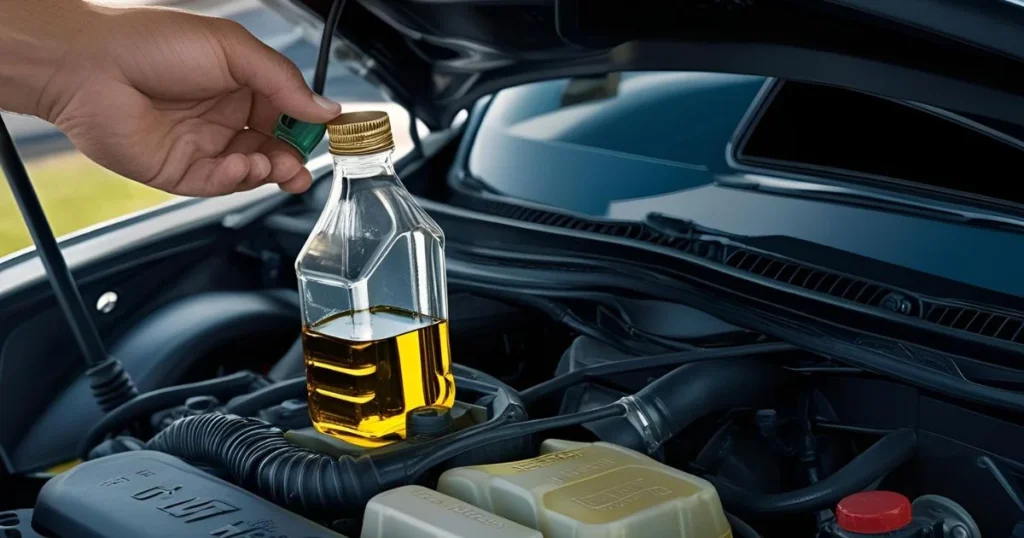Full Article: When to Check Oil for Optimal Performance
Introduction
Every car owner knows that maintaining their vehicle goes beyond just fueling it up and washing it. Regular oil checks are one of the simplest yet most crucial tasks for keeping your engine running smoothly. But when to check oil for optimal performance? It’s a question that might not always be top of mind until something goes wrong. I remember a time when I was on a long road trip, only to have my engine sputter and overheat.
Table of Contents
I hadn’t paid attention to my oil, and that mistake cost me. That experience made me realize how vital it is to check your oil regularly. Without it, your car’s performance can quickly deteriorate. This article will walk you through the importance of checking your oil and give you the tools you need to keep your engine performing at its best.
Why Regular Oil Checks Are Essential for Your Car’s Performance
Oil is the lifeblood of your car’s engine. It lubricates the moving parts, reduces friction, helps cool the engine, and keeps debris from building up. Without proper oil maintenance, your engine can suffer from overheating, poor fuel efficiency, and even complete failure.
- Preventing Engine Damage: Regular oil checks help ensure that your engine is running smoothly and that oil levels are appropriate. If you neglect to check your oil, it can lead to increased wear on engine parts and even engine failure.
- Improving Performance: Fresh oil helps maintain engine efficiency, improves fuel economy, and ensures that all components are working optimally.
Studies have shown that engines with regularly checked oil have a much longer lifespan and experience fewer mechanical issues.
Signs That Indicate It’s Time to Check Your Car’s Oil
Your car can give you several signals that it’s time to check the oil:
| Sign | What It Means |
|---|---|
| Oil Warning Light | Low oil levels or poor oil pressure. |
| Engine Noises | Clicking or knocking sounds could indicate low oil. |
| Excessive Smoke | Blue or gray smoke from the exhaust may signal oil burning. |
| Burning Smell | Overheated oil can produce a burnt smell. |
If you notice any of these signs, it’s important to check your oil right away.
When to Check Oil Based on Car Type and Usage

Not all cars are the same, and how often you need to check your oil depends on the type of car you drive and how you use it.
- For Newer Cars: Modern vehicles with synthetic oil may need fewer oil checks than older models with conventional oil.
- For Heavy-Duty Cars: Trucks, SUVs, and vehicles used for towing or off-roading often require more frequent oil checks due to higher engine stress.
| Car Type | Oil Check Frequency |
|---|---|
| Sedans (New) | Every 5,000-7,500 miles |
| SUVs/Trucks (Heavy Use) | Every 3,000 miles or more |
| Luxury Cars | Every 7,500 miles or as recommended |
Your driving habits play a big role in determining when to check oil — the more you drive, the more frequent checks are necessary.
How Often Should You Check Oil for Optimal Performance?
The general recommendation is to check your oil every 3,000 to 5,000 miles, but your car’s owner manual will provide more specific guidelines.
- Conventional Oil: Every 3,000 miles.
- Synthetic Oil: Every 7,500 to 10,000 miles.
It’s important to remember that some vehicles need oil checks more frequently, especially if you drive in stop-and-go traffic or in extreme weather conditions.
The Best Time to Check Your Car’s Oil
The best time to check your car’s oil is when the engine has cooled for at least 10 minutes.
- After the Engine Cools: Checking oil immediately after running the engine can give inaccurate results, as the oil may not have settled.
- Engine Temperature: Aim for a warm engine, but not too hot. Too high of a temperature can make the oil level reading unreliable.
| Condition | Best Time to Check Oil |
|---|---|
| After Short Drive | Wait 10 minutes after the engine cools slightly. |
| Long Drive | Wait for about 15-20 minutes for a more accurate reading. |
How to Check Oil for Optimal Performance: A Step-by-Step Guide

Checking your oil is easy once you know what to do. Here’s how you can do it:
- Park on Level Ground: This ensures accurate oil measurement.
- Turn Off the Engine: Wait for a few minutes to let the engine cool slightly.
- Locate the Dipstick: Open the hood and find the oil dipstick, usually marked with a bright color.
- Remove and Wipe the Dipstick: Clean the dipstick with a rag to remove any old oil.
- Reinsert the Dipstick: Put the dipstick back into the tube.
- Remove and Check the Oil Level: Pull the dipstick out again. The oil should be between the “low” and “full” marks.
The Impact of Poor Oil Maintenance on Car Performance
Neglecting oil checks and maintenance can lead to serious consequences for your vehicle:
- Engine Overheating: Without enough oil or with old, contaminated oil, the engine can overheat, causing long-term damage.
- Poor Performance: Low or old oil leads to poor engine performance, lower fuel efficiency, and higher emissions.
- Complete Engine Failure: Prolonged neglect can cause total engine failure, which could cost thousands of dollars in repairs.
Tips for Extending the Time Between Oil Checks
To keep your oil in optimal condition for longer, consider these tips:
- Drive Smoothly: Avoid excessive idling and aggressive driving to reduce oil consumption.
- Use Quality Oil: Always use high-quality oil recommended for your vehicle’s engine.
- Change Oil Regularly: Even if your oil level is fine, old oil can still lose its effectiveness.
| Tip | How It Helps |
|---|---|
| Drive Smoothly | Reduces wear and tear on the engine and oil. |
| Use High-Quality Oil | Ensures better lubrication and less breakdown of oil. |
FAQ Section
- What happens if you don’t check your oil regularly?
- Failing to check your oil can lead to engine damage, overheating, and eventually engine failure.
- How do I know if my oil is too old?
- If your oil is dark and gritty, it may be time for a change.
- Can I check my oil when the engine is hot?
- It’s best to wait until the engine cools slightly to get an accurate reading.
- Why does my oil turn black so quickly?
- Black oil often indicates that it’s picking up contaminants, which is normal. However, if it changes color too quickly, it might need to be replaced.
- How can I tell if I need to change my oil?
- If the oil level is low or the oil is dark and thick, it’s time to change it.
Regular oil checks are an essential part of maintaining your vehicle’s performance. By understanding when to check oil and following a regular maintenance schedule, you can keep your car running smoothly for years to come.

